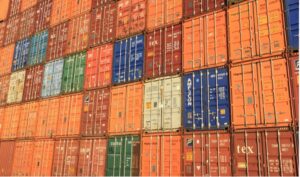China is one of the world’s largest exporters of goods, and Georgia is one of its growing markets in the Caucasus region. If you are an importer who wants to source products from China and ship them to Georgia, you need to understand the shipping process and the factors that affect it.
Understanding the shipping process

The shipping process from China to Georgia involves several steps and parties, such as suppliers, freight forwarders, carriers, customs brokers, and customs authorities. Here is a simplified overview of the main steps:
- You place an order with a supplier in China and agree on the terms of trade, such as Incoterms, payment terms, and delivery time.
- The supplier prepares the goods and packs them according to the shipping method and destination requirements. The supplier also provides the necessary documents, such as commercial invoice, packing list, certificate of origin, and bill of lading or air waybill.
- The supplier or you arrange the transportation of the goods from the factory or warehouse to the port or airport of departure in China. This is usually done by a domestic trucking company or a freight forwarder.
- The goods are loaded onto a vessel or an aircraft and depart from China. The carrier issues the bill of lading or air waybill, which serves as the contract of carriage and the proof of shipment.
- The goods arrive at the port or airport of destination in Georgia. The carrier or the freight forwarder notifies you or your customs broker of the arrival and provides the necessary documents for customs clearance.
- You or your customs broker submit the documents and pay the duties and taxes to the customs authorities in Georgia. The customs authorities inspect and release the goods.
- The goods are delivered to your warehouse or final destination in Georgia. This is usually done by a local trucking company or a freight forwarder.
Choosing the right shipping method
There are two main shipping methods from China to Georgia: sea freight and air freight. Each method has its advantages and disadvantages, depending on your needs and preferences. Here are some factors to consider when choosing the right shipping method:
- Sea freight is the most common and cost-effective shipping method for large and heavy shipments. However, it is also the slowest and most prone to delays and damages. Sea freight from China to Georgia usually takes 30 to 45 days, depending on the route and the carrier. The main ports of departure in China are Shanghai, Ningbo, Shenzhen, Guangzhou, and Tianjin. The main ports of arrival in Georgia are Poti and Batumi.
- Air freight is the fastest and most reliable shipping method for small and urgent shipments. However, it is also the most expensive and has strict limitations on the size and weight of the cargo. Air freight from China to Georgia usually takes 3 to 7 days, depending on the flight schedule and the carrier. The main airports of departure in China are Beijing, Shanghai, Guangzhou, Shenzhen, and Hong Kong. The main airports of arrival in Georgia are Tbilisi and Kutaisi.
Documentation and customs requirements

To ship goods from China to Georgia, you need to prepare and provide the following documents:
- Commercial invoice: This document shows the details of the transaction, such as the seller, the buyer, the description and value of the goods, the terms of trade, and the currency. The commercial invoice is used for customs valuation and duty calculation.
- Packing list: This document shows the details of the packing, such as the number and weight of the packages, the dimensions and volume of the cargo, and the marks and numbers on the packages. The packing list is used for customs inspection and verification.
- Certificate of origin: This document shows the origin of the goods, such as the country of manufacture or production. The certificate of origin is used for customs classification and preferential tariff treatment. Georgia has a free trade agreement with China, which means that the goods originating from China can enjoy zero or reduced tariffs, subject to certain rules and conditions. The certificate of origin must be issued by a competent authority in China, such as the China Council for the Promotion of International Trade (CCPIT).
- Bill of lading or air waybill: This document shows the details of the shipment, such as the carrier, the consignor, the consignee, the port or airport of departure and arrival, and the freight charges. The bill of lading or air waybill is used as the contract of carriage and the proof of shipment.
In addition to these documents, you may also need to provide other documents, such as:
- Inspection certificate: This document shows that the goods have been inspected and comply with the quality, quantity, and safety standards of the destination country. The inspection certificate may be required by the buyer, the customs authorities, or the banks involved in the transaction. The inspection certificate must be issued by an accredited inspection company, such as SGS, Bureau Veritas, or Intertek.
- Insurance certificate: This document shows that the goods are insured against loss or damage during transit. The insurance certificate may be required by the buyer, the carrier, or the banks involved in the transaction. The insurance certificate must be issued by a reputable insurance company, such as China Export and Credit Insurance Corporation (SINOSURE) or China Pacific Insurance Group (CPIC).
- Fumigation certificate: This document shows that the goods have been fumigated and are free from pests and diseases. The fumigation certificate may be required by the customs authorities or the quarantine agencies of the destination country. The fumigation certificate must be issued by a licensed fumigation company, such as China Entry-Exit Inspection and Quarantine Bureau (CIQ) or China Certification and Inspection Group (CCIC).
Shipping costs and considerations

The shipping costs from China to Georgia depend on various factors, such as the shipping method, the weight and volume of the cargo, the distance and route of the shipment, the season and demand of the market, and the fees and charges of the parties involved in the shipping process. Here are some of the main components of the shipping costs:
- Freight rate: This is the price charged by the carrier for transporting the goods from the port or airport of departure to the port or airport of arrival. The freight rate is usually quoted in US dollars per container for sea freight, or per kilogram for air freight. The freight rate may vary depending on the supply and demand of the shipping capacity, the fuel surcharge, the exchange rate, and the carrier’s policy.
- Local charges: These are the fees and charges incurred at the port or airport of departure and arrival, such as the terminal handling charge, the documentation fee, the port security fee, the customs clearance fee, the inspection fee, the storage fee, and the demurrage and detention fee. The local charges are usually paid by the seller or the buyer, depending on the terms of trade. The local charges may vary depending on the port or airport, the carrier, the freight forwarder, and the customs broker.
- Duties and taxes: These are the levies imposed by the customs authorities on the imported goods, such as the customs duty, the value-added tax, the excise tax, and the special tax. The duties and taxes are usually paid by the buyer or the importer, unless otherwise agreed. The duties and taxes may vary depending on the customs valuation, the customs classification, the preferential tariff treatment, and the customs policy.
- Transportation cost: This is the cost of transporting the goods from the factory or warehouse to the port or airport of departure, and from the port or airport of arrival to the warehouse or final destination. The transportation cost is usually paid by the seller or the buyer, depending on the terms of trade. The transportation cost may vary depending on the distance, the mode of transport, the weight and volume of the cargo, and the trucking company or the freight forwarder.
When estimating the shipping costs from China to Georgia, you need to consider the following factors:
- Terms of trade: The terms of trade, such as Incoterms, define the responsibilities and obligations of the seller and the buyer in the shipping process, such as who pays for the freight, the local charges, the duties and taxes, and the transportation cost. The terms of trade also determine the transfer of risk and ownership of the goods, such as when and where the seller delivers the goods to the buyer. The most common terms of trade for shipping from China to Georgia are FOB (Free On Board), CIF (Cost, Insurance, and Freight), and DDP (Delivered Duty Paid).
- Weight and volume of the cargo: The weight and volume of the cargo affect the shipping costs in different ways, depending on the shipping method. For sea freight, the shipping costs are based on the container size, which is usually 20 feet or 40 feet. The container size is determined by the volume of the cargo, not the weight. However, if the weight of the cargo exceeds the maximum payload of the container, which is usually 22 tons for 20 feet and 26 tons for 40 feet, the shipping costs will increase accordingly. For air freight, the shipping costs are based on the chargeable weight of the cargo, which is the greater of the actual weight or the volumetric weight. The volumetric weight is calculated by multiplying the length, width, and height of the package in centimeters, and dividing by 6,000. The higher the weight and volume of the cargo, the higher the shipping costs.
- Distance and route of the shipment: The distance and route of the shipment affect the shipping time and the shipping costs, depending on the shipping method. For sea freight, the longer the distance and the more transshipment points, the longer the shipping time and the higher the shipping costs. For air freight, the shorter the distance and the fewer stopovers, the shorter the shipping time and the lower the shipping costs. The distance and route of the shipment may vary depending on the availability and schedule of the carriers and the flights.
- Season and demand of the market: The season and demand of the market affect the supply and demand of the shipping capacity and the freight rates, depending on the shipping method. For sea freight, the peak season is usually from August to October, when the demand for shipping is high due to the holiday season and the trade fairs. The low season is usually from February to April, when the demand for shipping is low due to the Chinese New Year and the winter weather. The freight rates are usually higher in the peak season and lower in the low season. For air freight, the peak season is usually from November to January, when the demand for shipping is high due to the Christmas and the New Year. The low season is usually from May to July, when the demand for shipping is low due to the summer vacation and the rainy season. The freight rates are usually higher in the peak season and lower in the low season.
- Fees and charges of the parties involved in the shipping process: The fees and charges of the parties involved in the shipping process affect the total shipping costs, depending on the shipping method and the terms of trade. For sea freight, the fees and charges include the terminal handling charge, the documentation fee, the port security fee, the customs clearance fee, the inspection fee, the storage fee, the demurrage and detention fee, the insurance fee, and the trucking fee. For air freight, the fees and charges include the airport handling charge, the documentation fee, the airport security fee, the customs clearance fee, the inspection fee, the storage fee, the airport surcharge, the insurance fee, and the trucking fee. The fees and charges may vary depending on the port or airport, the carrier, the freight forwarder, the customs broker, and the trucking company.
Tracking and monitoring your shipment

Tracking and monitoring your shipment from China to Georgia is important for ensuring the safety and timely delivery of your goods. There are different ways to track and monitor your shipment, depending on the shipping method and the carrier. Here are some of the common ways to track and monitor your shipment:
- Bill of lading or air waybill number: This is the unique identification number of your shipment, which is issued by the carrier and shown on the bill of lading or air waybill. You can use this number to track the status and location of your shipment on the carrier’s website or app, or on a third-party platform, such as 17track or TrackingMore.
- Container number: This is the unique identification number of the container that carries your goods, which is shown on the bill of lading or the container seal. You can use this number to track the movement and position of your container on the carrier’s website or app, or on a third-party platform, such as MarineTraffic or VesselFinder.
- Tracking code: This is the unique identification number of your package or parcel, which is issued by the freight forwarder or the courier service, such as DHL, FedEx, UPS, or TNT. You can use this number to track the delivery and status of your package or parcel on the freight forwarder’s or the courier service’s website or app, or on a third-party platform, such as 17track or TrackingMore.
Dealing with customs delays and issues
Customs delays and issues are one of the main challenges and risks of shipping from China to Georgia. Customs delays and issues can cause your shipment to be held, inspected, fined, or confiscated by the customs authorities, resulting in additional costs, time, and hassle. Here are some of the common causes and solutions for customs delays and issues:
- Incomplete or incorrect documents: This is one of the most common causes of customs delays and issues, as the customs authorities require complete and correct documents for customs clearance and verification. To avoid this, you need to ensure that your documents are prepared and provided according to the customs requirements and regulations, and that they match the actual goods and the terms of trade. You also need to check and confirm the documents with your supplier, your freight forwarder, and your customs broker before shipping.
- Duties and taxes: This is another common cause of customs delays and issues, as the customs authorities require the payment of duties and taxes for the imported goods. To avoid this, you need to estimate and budget for the duties and taxes in advance, and pay them promptly and accurately to the customs authorities. You also need to check and confirm the duties and taxes with your supplier, your freight forwarder, and your customs broker before shipping.
- Inspection and quarantine: This is a possible cause of customs delays and issues, as the customs authorities may inspect and quarantine your goods for quality, quantity, and safety reasons. To avoid this, you need to ensure that your goods comply with the standards and regulations of the destination country, and that they are packed and labeled properly and securely. You also need to provide the necessary certificates and permits for the inspection and quarantine, such as the inspection certificate, the fumigation certificate, and the sanitary and phytosanitary certificate.
- Prohibited or restricted goods: This is a serious cause of customs delays and issues, as the customs authorities may seize or destroy your goods if they are prohibited or restricted by the destination country. To avoid this, you need to check and confirm the list of prohibited or restricted goods in the destination country, and avoid shipping such goods. You also need to obtain the necessary licenses and approvals for the prohibited or restricted goods, such as the import license, the export license, and the special permit.
Tips for a smooth shipping process

To ensure a smooth shipping process from China to Georgia, you need to follow some best practices and tips, such as:
- Plan ahead and communicate well: You need to plan ahead and communicate well with your supplier, your freight forwarder, your customs broker, and your carrier, and make sure that you are on the same page regarding the shipping process, the shipping method, the terms of trade, the documents, the duties and taxes, and the delivery time. You also need to keep track and monitor your shipment, and update and inform the parties involved of any changes or issues.
- Choose the right shipping method and the right shipping partner: You need to choose the right shipping method and the right shipping partner for your shipment, based on your needs and preferences, such as the cost, the time, the reliability, and the service. You need to compare and evaluate different shipping methods and different shipping partners, and select the one that suits you best. You also need to check and verify the reputation and credibility of your shipping partner, and make sure that they are licensed and experienced.
- Prepare and provide the documents and the payment: You need to prepare and provide the documents and the payment for your shipment, according to the customs requirements and regulations, and the terms of trade. You need to ensure that your documents are complete and correct, and that they match the actual goods and the terms of trade. You also need to ensure that your payment is prompt and accurate, and that you have the proof of payment and the receipt.
- Pack and label your goods properly and securely: You need to pack and label your goods properly and securely, according to the shipping method and the destination requirements. You need to ensure that your goods are protected and cushioned from damage and loss, and that they are sealed and locked. You also need to ensure that your goods are labeled clearly and correctly, and that they show the necessary information, such as the description and value of the goods, the name and address of the consignor and the consignee, the port or airport of departure and arrival, and the marks and numbers on the packages.
Finding reliable shipping partners and logistics providers
Finding reliable shipping partners and logistics providers is crucial for a successful and hassle-free shipping process from China to Georgia. Shipping partners and logistics providers are the parties that help you with the transportation, the documentation, the customs clearance, and the delivery of your goods, such as the freight forwarders, the carriers, the customs brokers, and the trucking companies. Here are some of the benefits and advantages of finding reliable shipping partners and logistics providers:
- They can save you time and money: They can save you time and money by handling the shipping process for you, and by offering you competitive and affordable rates and fees. They can also save you time and money by avoiding or resolving any customs delays and issues, and by ensuring the safety and timely delivery of your goods.
- They can provide you with professional and personalized service: They can provide you with professional and personalized service by understanding your needs and preferences, and by offering you customized and flexible solutions. They can also provide you with professional and personalized service by communicating and coordinating with you and the other parties involved in the shipping process, and by providing you with updates and feedback.
- They can give you access to more options and resources: They can give you access to more options and resources by connecting you with a wide network of carriers, ports, airports, and logistics providers. They can also give you access to more options and resources by providing you with advanced tools and technologies, such as online platforms, tracking systems, and data analytics.





